【TOEIC 多益文法解惑室】第二章 動名詞 #1 動名詞的功能
年度暢銷千本!讀者推薦最佳解惑&補腦神書!
#文法 #TOEIC多益考試攻略 #TOEIC多益文法解惑室 #免費試閱

- 常春藤中外編輯群
- 發布於 Jun.06,2024

精準地列出考題常用的文法,同時不浪費篇幅(讀者的時間)在太基礎的文法上,很適合文法有一定基礎但不夠準確的人。
延伸閱讀 >> 解析文法【時態- 4】
1. 動名詞的功能:
動名詞即動詞變成的名詞。與名詞一樣,動名詞在句中可作主詞、受詞或置 be 動詞之後,作主詞補語。
a. 主詞
例: Sing is a lot of fun.(×,Sing 是動詞,不能作主詞)
→ Singing is a lot of fun.(○,Singing 是動名詞,可作主詞)
(唱歌很有趣。)
Lose a job for the first time is a painful experience.(×,Lose 是動詞,不能作主詞)
→ Losing a job for the first time is a painful experience.(○)
(第一次失業會是個痛苦的經驗。)b. 受詞
1) 及物動詞的受詞
例: The man finally admitted(vt.)stealing(受詞) George's money.(那個男子終於承認偷了喬治的錢。)
2) 介詞的受詞
例: Peter is fond of (介)singing(受詞).(彼得很喜歡唱歌。)c. be 動詞之後的補語
例: My hobby is singing.(主詞補語)
= Singing(主詞)is my hobby.(我的嗜好就是唱歌。)Peter's favorite pastime is reading(主詞補語).
= Reading(主詞) is Peter's favorite pastime.(彼得最愛的消遣就是閱讀。)注意:
動名詞或動名詞片語作主詞時,視作不可數名詞,之後的動詞恆為單數。
例: Teaching those naughty children(動名詞片語) are painful. (×)
→ Teaching those naughty children is painful. (○)
(教導那些調皮的孩子很痛苦。)但若有兩個動名詞或動名詞片語作主詞並以 and 連接時,即表示有兩個主詞,之後的動詞則用複數。
例: Hiking(動名詞) and swimming(動名詞) are what I often do on weekends.
(週末的時候我常做的事就是健行和游泳。)
Teaching naughty children(動名詞片語) and teaching hardworking children(動名詞片語) are two totally different experiences.
(教導調皮的孩子與教導用功的孩子是兩個截然不同的經驗。)
2. 下列及物動詞須以動名詞作受詞:
admit(承認)、advise(建議)、allow(允許)、anticipate(期望)、appreciate(感激)、avoid(避免)、complete(完成)、consider(考慮)、delay(延期)、deny(否認)、dislike(不喜歡,厭惡)、dread(害怕)、enjoy(喜歡)、finish(完成)、imagine(想像)、mind(在乎)、permit(允許)、postpone(延期)、practice(練習)、propose(建議)、quit(停止,戒除)、recommend(建議)、resent(痛恨)、risk(冒險)、suggest(建議)
例: I advise to redo the work. (×)
→ I advise redoing the work. (○)
(我建議這工作重做一遍。)The little boy dreads to talk to his father. (×)
→ The little boy dreads talking to his father. (○)
(這個小男孩害怕跟他父親說話。)
You should practice to speak English all the time. (×)
→ You should practice speaking English all the time. (○)
(你應不時練習說英語。)3. 下列及物動詞可接動名詞或不定詞作受詞,但意思不一樣:
a. mean + V-ing 意即……
人 + mean to V 某人有意要⋯⋯
= 人 + intend to V例: Your participation means wasting time.
(你的參與意即浪費時間。)
I meant to help Mary, but she turned me down.
(我有意要幫助瑪麗,卻遭她拒絕。)b. regret + V-ing 後悔曾……
regret to V 抱歉要⋯
例: I regret writing the letter.
(我後悔曾經寫了這封信。)
We regret to tell you that you didn't meet our expectations.
(我們很抱歉要告訴您,您未達到我們的期望。)c. remember + V-ing 記得曾……
remember to V 記得要⋯⋯
例: I remember calling you yesterday.
(我記得昨天曾打電話給你。)
I'll remember to call you again tomorrow.
(我會記得明天再打電話給你。)d. forget + V-ing 忘了曾……
forget to V 忘了要⋯⋯
例: I forgot meeting that girl before.
(我忘了以前曾見過那個女孩。)
Don't forget to call me tomorrow.
(別忘了明天要打電話給我。)4.人 + spend / waste + 時間 + (in) + V-ing 花∕浪費若干時間從事…… :
例: I spend at least an hour a day to work out in a gym. (×)
→ I spend at least an hour a day working out in a gym. (○)
(我每天會在健身院運動至少一個鐘頭。)
It's stupid of Peter to waste so much time to watch TV every night. (×)
→ It's stupid of Peter to waste so much time watching TV every night. (○)
(彼得真蠢,每晚都花那麼多時間看電視。)注意:
a. spend 或 waste 之後亦可接表時間或金錢的名詞,此時採下列結構:
人 + spend / waste + 時間/金錢 + on + 名詞 花/浪費若干時間/金錢在⋯⋯之上
例: You should spend more time on your studies.
(你應多花些時間在課業上。)
Mary spends most of her salary on clothes.
(瑪麗把大部份的薪水都花在製裝上。)
Don't waste your time and money on video games.
(別把你的時間及金錢都浪費在電玩上。)b. take 及 cost 亦表『花費』,但主詞是事物而非人,且 take 之後接時間,cost 之後接金錢。
例: The trip took us five days(時間).
(這趟旅程花了我們 5 天的時間。)
The trip cost us $2,000.
(這趟旅程花了我們美金兩千元。)
但使用 take 或 cost 時,可用 it 作虛主詞,有下列用法:It(虛主詞) took us five days to take the trip(真主詞).
(這趟旅程花了我們 5 天的時間。)
It(虛主詞) cost us $2,000 to take the trip(真主詞).
(這趟旅程花了我們美金兩千元。)
 |
下一集將介紹「動名詞」的第 2 節「常用的動名詞慣用語」,我們準時每週(四)早上見囉~




